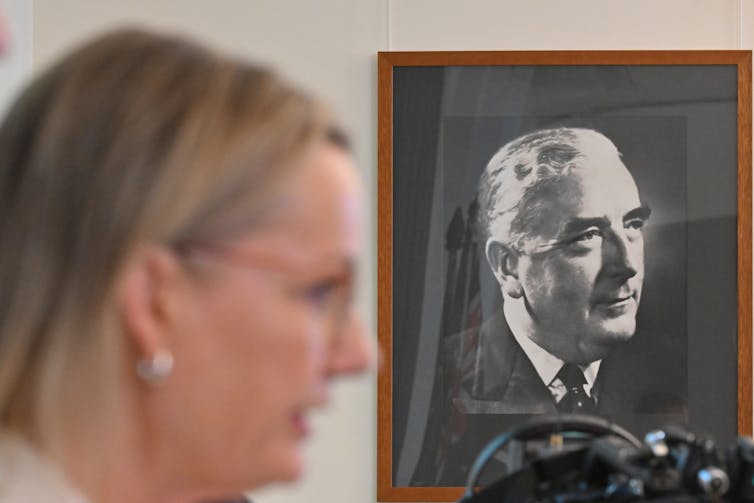
The Australian Liberal Party’s recent decision to abandon its commitment to a net zero emissions target has raised significant concerns about its electoral strategy. This move, seen as prioritizing ideological beliefs over practical governance, risks alienating key voter demographics as the party prepares for upcoming elections.
Reflecting on the past, the Liberal conservatives might benefit from examining the lessons of Gough Whitlam, who led the Labor Party after its defeat in the 1966 election. In a 1967 speech to the Victorian Labor Party, Whitlam emphasized the importance of electability over rigid ideology. The current Liberal leadership’s choice to discard the net zero target mirrors Whitlam’s warnings about the dangers of ignoring voter sentiment.
During a recent meeting, Andrew Hirst, the federal director of the Liberal Party, highlighted that abandoning the net zero target could have serious political consequences. According to research, net zero has become a critical issue for voters, acting as a “proxy” for climate action. Despite Hirst’s caution, the party leadership proceeded with the decision, disregarding the potential fallout among moderates and constituents.
The Liberal Party’s current standing is precarious, with recent polling indicating a primary vote of just 24% according to Newspoll. They face challenges in regaining trust from young voters and women, demographics where the Labor Party has a stronghold. The party’s previous urban seats have largely shifted to independent candidates, further complicating their path to recovery.
The ramifications of this policy shift are underscored by the views of Gisele Kapterian, a former Liberal candidate in the marginal seat of Bradfield. Kapterian has urged her party to maintain its commitment to a net zero emissions target, asserting that a credible climate policy is essential for winning over discerning voters in urban areas. In an email to party members, she stated, “Retreat is an electoral liability,” highlighting the need for the Liberals to differentiate their energy policy from that of the Labor Party.
Despite these concerns, the leadership has opted for a vague stance: while the commitment to the net zero target is officially out, achieving it would be welcomed. This ambiguous positioning leaves many questioning how the party intends to navigate its climate and energy policies moving forward.
Questions surrounding the party’s ability to effectively communicate this new policy are also prominent. Sussan Ley, the current leader, struggled to articulate the rationale behind the shift during a press conference. Her lack of conviction was evident, as she refrained from sharing personal views during the party meeting, further eroding confidence in her leadership.
The ideological divide within the Liberal Party remains stark. Even if moderates align with the leadership, their previous statements reflect a commitment to climate action that now contrasts with the party’s current direction. This division has been exacerbated by conservative figures such as Barnaby Joyce, whose recent influence has pushed the party further away from centrist positions.
Ley’s leadership style has been criticized for its lack of decisiveness. While she once supported the net zero target, her recent actions suggest a willingness to conform to the prevailing conservative sentiment within the party. Many believe that a more courageous leader might have advocated for a stronger climate policy, even at the risk of losing their position. Such a move could have potentially galvanized support among moderates and progressive voters.
As the Liberal Party navigates this challenging landscape, the implications of their decision on net zero emissions will likely resonate through the next election cycles. The party’s current trajectory indicates a struggle to reconnect with vital voter segments, raising questions about their future viability in Australian politics.
In summary, the decision to abandon the net zero target reflects a significant ideological shift within the Liberal Party, one that could alienate essential voter demographics. As the party faces mounting pressures from both its base and the electorate, the long-term consequences of this strategy remain to be seen.






